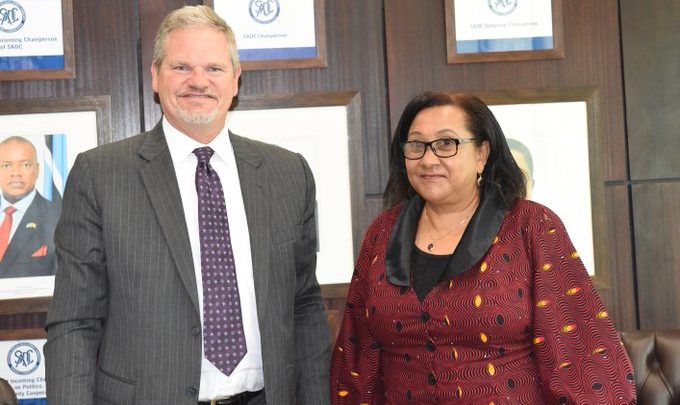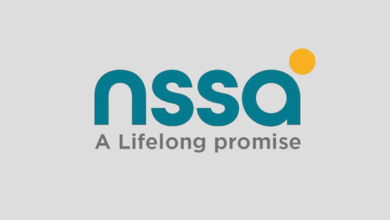FACTCHECK: Did SADC’s Executive Secretary confirm that sanctions are not the cause of Zimbabwe’s crisis?
CLAIM: The US Embassy in Botswana said its ambassador, Craig Cloud and Executive Secretary of Southern African Development Community (SADC), Dr.Stergomena Tax who met recently, discussed how failed economic policies and corruption have created the current economic crisis in Zimbabwe, not sanctions.

The tweet posted Tuesday read:
Ambassador Cloud and @DrTaxs also discussed how failed economic policies and corruption have created the current economic crisis in Zimbabwe. #ItsNotSanctions pic.twitter.com/Ggc8QcUs4z
— US Embassy Botswana (@USEmbassyBW) January 28, 2020
Dr Tax refuted the claims by the US Embassy in Bostwana saying that was not part of what she and Ambassador Cloud discussed.
Below is Dr Tax ’s response:
This was not part of what was discussed! Might be the position of the Embassy, but definitely not SADC’s position @USEmbassyBW @nickmangwana https://t.co/tNzoZ4SnQs
— Dr.Stergomena Tax (@DrTaxs) January 28, 2020
Check SADC’s response:
#USA Ambassador to #Botswana, H.E. Craig Cloud, paid courtesy call on @DrTaxs to apprise on #USA support to Zimbabwe and follow-up on sanctions imposed on Zimbabwe. https://t.co/etby6mMDEv@edmnangagwa @sardcnet @USEmbassyBW pic.twitter.com/hg2JfHcs3c— SADC Secretariat (@SADC_News) January 29, 2020
To buttress Dr Tax’s claims, SADC released a press statement following Ambassador Cloud’s courtesy visit and appraisal on US support to Zimbabwe plus follow-up on sanctions imposed on the country.
According to the SADC statement, the US Ambassador to Botswana, indicated his government has provided more than US$300 million in 2019 as support to Zimbabwe.
“The Ambassador also presented the US view on sanctions imposed on Zimbabwe, indicating that the sanctions were only targeted on 141 individuals and entities in Zimbabwe. In addition, Ambassador Cloud said that under the Zimbabwe Democracy and Economic Recovery Act (ZIDERA), the US is prevented from voting in support of Zimbabwe’s application for international financial support,” read the press statement.
Ambassador Cloud added that this ZIDERA provision was not exercised as Zimbabwe is currently in arrears that prevent the country from accessing loans from international financial institutions.
“In response, Dr. Tax thanked the US Government for the continued support, not only to Zimbabwe, but to the entire SADC region, and went further to say that there is need to address the root causes of the challenges experienced in Zimbabwe, mainly poverty.
“She further indicated that while SADC appreciates the support given to non-State actors, it is also important for the US to support the Government of Zimbabwe and the ongoing reforms to make sure the country progresses,” said the SADC statement.
Dr Tax observed while elections were conducted in Zimbabwe, and the Constitutional Court made a determination on the election results, it was unfortunate that legitimacy question continued to be advanced by certain parties.
She said: “It is incumbent upon all stakeholders to observe the court ruling, respect the arms of government and guiding legislation, and work together for the prosperity of the country.”
CONCLUSION
On sanctions, the SADC Executive Secretary noted that, “it is important to recognise the economic impacts of sanctions on the Zimbabwean economy and Zimbabweans, taking into account that some of the entities under sanctions contribute greatly to the economy of Zimbabwe.”
According to SADC, Dr Tax emphasised the importance of lifting sanctions, noting that even though the US have not exercised the ZIDERA voting provision to oppose application for finance, Zimbabwe has not been granted special dispensation, unlike other countries that have not fully serviced their debts.
“Dr. Tax presented Ambassador Cloud with a detailed analysis of the impact of the sanctions on Zimbabwe and the SADC region, as detailed in the SADC Statement on the sanctions which was released on 25 October 2019, and urged the US to reconsider their position on the sanctions, and to support Zimbabwe in the country’s economic recovery process,” read the statement.
Meanwhile, Ambassador Cloud also raised the US government’s concerns about the human rights situation in Zimbabwe, while Dr Tax advised him to engage directly with the Zimbabwean Government to obtain a full understanding of the issues.
The Ambassador also pointed out the Zimbabwe land reform programme, specifically on the issue of non-compensation to former farm owners and Dr Tax emphasised the need for the full implementation of the Lancaster House Agreement, and called upon all signatories to the Accord to implement it to the letter.






